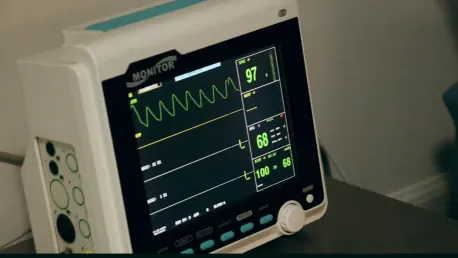The recent announcement by the FDA concerning the potential high-risk issue with Fresenius Kabi’s Ivenix large-volume infusion pumps (LVP) has raised important questions regarding the adequacy of safety measures in medical device usage. The initial alert followed a company communication from Fresenius Kabi on December 5, which informed users of a subset of Ivenix LVPs that might contain faulty pneumatic valves, leading to a non-recoverable pump problem alarm. As this issue pertains to a critical aspect of delivering fluids and medications through a single outlet, it brings forward the significance of timely and effective communication between regulatory bodies and healthcare providers.
The use of infusion pumps like the Ivenix LVP is paramount in medical settings, as they are central to precise fluid and medication delivery. However, the discovery of malfunctioning pneumatic valves in certain LVPs highlights a crucial vulnerability that could compromise patient safety. The early alert from the FDA emphasized that affected devices should be removed from active use for evaluation and repair. Despite the urgency in the notification, questions linger about whether this measure alone suffices to ensure patient safety, particularly in situations where prompt device removal is not feasible.
Addressing Immediate Actions for Affected Devices
In scenarios where removing the compromised Ivenix LVPs from use is not an immediate option, the FDA recommends enhanced clinical monitoring during device operation. This precautionary step is aimed at minimizing patient risk while affected devices await repair. Additionally, the FDA advises healthcare facilities to have an alternative LVP available as a backup to promptly address any issues that may arise. Such recommendations underscore the critical nature of maintaining continuous vigilance in clinical settings when using devices prone to malfunction.
Healthcare providers are further urged to reconfigure the infusion on another LVP if the non-recoverable pump problem alarm sounds, and to report the issue to their biomedical engineering department. This layered approach aims to ensure a rapid response to potential device failures, safeguarding patient health in the interim period. Nevertheless, the sufficiency of these measures remains a matter of concern, particularly in high-stakes medical procedures where device reliability is crucial.
FDA’s Enhanced Communication Strategy
The FDA’s early alert about the Ivenix LVP’s valve issue is part of a broader initiative by the FDA’s Center for Devices and Radiological Health (CDRH) to improve the timeliness and clarity of communications regarding high-risk device recalls. This pilot program is intended to enable faster dissemination of crucial information to healthcare providers, allowing for swifter action in mitigating potential risks associated with faulty medical devices. While the intent of this program is commendable, the real-world effectiveness of these communications in preventing adverse outcomes remains to be continuously evaluated.
The new communication strategy by the FDA reflects an evolving approach to medical device recalls, moving towards greater transparency and proactive information sharing. By alerting healthcare providers early, the FDA aims to prevent adverse events and improve overall patient safety. Nonetheless, the reliance on healthcare institutions to enact prompt and thorough responses to these alerts is pivotal. Any delay or lapse in following recommended actions could lead to negative consequences, thus emphasizing the need for robust implementation of the FDA’s guidelines.
Broader Safety Implications for Medical Devices
The FDA recently issued a warning about potential high-risk issues with Fresenius Kabi’s Ivenix large-volume infusion pumps (LVP). This followed a notice from Fresenius Kabi on December 5, informing users that some Ivenix LVPs may have faulty pneumatic valves, which could trigger a non-recoverable pump problem alarm. This critical issue, which affects fluid and medication delivery through a single outlet, highlights the importance of prompt and effective communication between regulatory bodies and healthcare providers to ensure patient safety.
Infusion pumps such as the Ivenix LVP are vital in medical settings due to their role in accurately delivering fluids and medications. The revelation of malfunctioning valves in some LVPs exposes a significant safety concern that could endanger patients. The FDA’s early alert advised that affected devices be taken out of use immediately for evaluation and repair. However, there are still concerns about whether this action alone is enough to guarantee patient safety, especially in scenarios where the immediate removal of compromised devices is not feasible.









